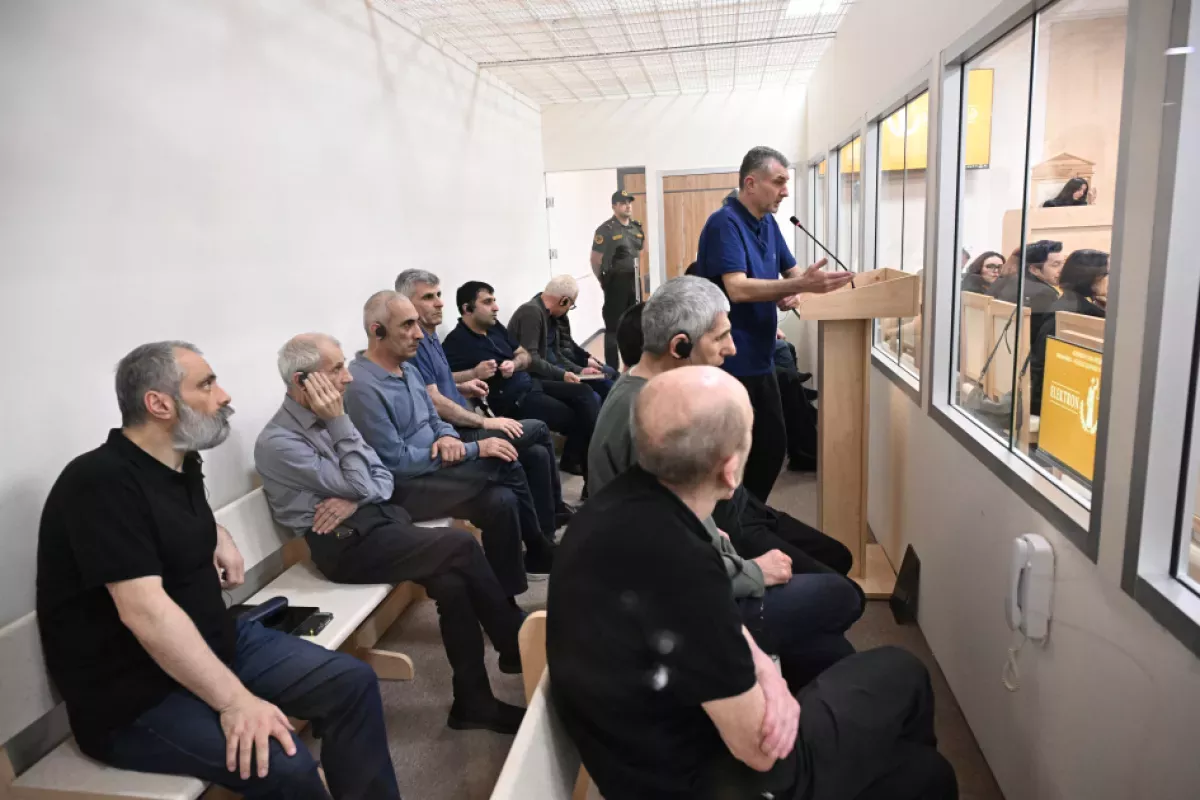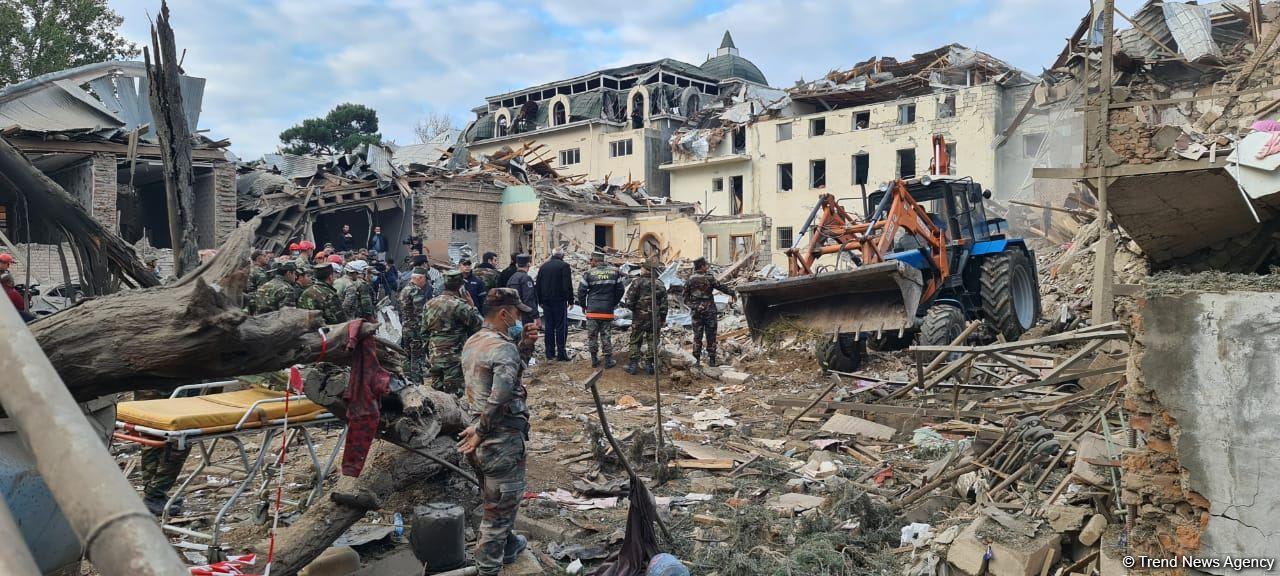Missile strikes on Ganja: Crime with no statute of limitations Threads lead to Yerevan
The revelations made on May 30 at the Baku Military Court sent shockwaves through the courtroom. For the first time, the names of several members of the Armenian Armed Forces were officially disclosed in connection with the missile attacks on Azerbaijan’s city of Ganja—acts widely regarded as a blatant example of warfare conducted through terrorist methods.
To recap, on October 4, 5, 8, 11, and 17, 2020, Armenian forces launched a series of missile strikes targeting residential areas in Ganja. These attacks killed 26 civilians and deliberately injured 175 others, marking some of the deadliest assaults against Azerbaijan’s civilian population during the 2020 war.

At the hearing, the court reviewed key documents from the ongoing criminal investigation, which detail the intentional targeting and killing of civilians in Ganja between October 4 and 18, 2020.
It was revealed that on October 11, 2020, an Elbrus operational-tactical missile system, brought to combat readiness with the intent of causing maximum casualties, was deliberately aimed at the city of Ganja—a location that was not considered part of an active conflict zone, where no military operations were taking place and no military targets were located. In other words, the Armenian side carried out a deliberate attack on Azerbaijani civilians, which resulted in the intentional killing of 10 civilians, the serious injury of one, light injuries to 18 others, and wounds of undetermined severity to 32 more.
Over the years, official Yerevan has never acknowledged its responsibility for this heinous crime against humanity. Not a single country in the world imposed sanctions on the Armenian leadership at the time. Even the co-chairing countries of the now-defunct and infamous OSCE Minsk Group failed to condemn this act of terror. The European Union merely expressed regret, while then-U.S. Secretary of State Mike Pompeo issued an ambiguous call for a ceasefire, and Russian officials voiced concern and called for adherence to the humanitarian truce reached on October 10.
France, unsurprisingly, took a similar stance, calling for observance of the ceasefire. Paris issued a particularly vague statement: “We condemn the continuation of violence, regardless of which side it comes from, and call for it to end.”
What has been said unequivocally confirms this: not one of the OSCE Minsk Group co-chair countries specifically condemned Armenia for the strike on Ganja, despite the Azerbaijani side’s clear statements that the attack was launched from Armenian territory. This serves as further evidence that the Minsk Group co-chairs were never genuinely interested in a fair resolution of the Armenian-Azerbaijani conflict. Their entire approach was aimed at keeping the conflict in a state of perpetual “freeze,” without issuing any condemnation of Armenia’s actions. This will forever remain a dark stain on all three OSCE Minsk Group co-chair countries—one that cannot be washed away.
This is especially significant in light of Friday’s hearing at the Baku court, where the names of those involved in carrying out the terrorist missile strike on Ganja were publicly revealed. According to case documents, under the command of Colonel Artashen Rafiki Hajatyan—head of the 71st military equipment storage base (military unit No. 51556) of the Armenian Armed Forces, stationed in the Stepanavan district—the following individuals played a role: Deputy Commander Lieutenant Colonel Ara Artushi Sargsyan; Commander of the Elbrus operational-tactical missile system battalion, Lieutenant Colonel Vazgen Daviti Vardanyan; and Commander of the Iskander operational-tactical missile system battalion, Lieutenant Colonel Tigran Norayri Vardanyan, among others.
Under their direction, an Elbrus operational-tactical missile system held in reserve by this military unit—possessing a higher destructive capability than the weapons previously used—was transported to the Vardenis (formerly Basarkechar) district of Armenia’s Gegharkunik Province.

As we can see, all of those named are servicemen of the Armenian Armed Forces. And without a doubt, such a strike could not have been carried out without authorisation from then-Armenian Defence Minister David Tonoyan—the same official who once publicly declared that the next war with Azerbaijan would result in Armenia seizing new territories. This raises a serious question: were such acts of terror against civilians part of the strategy behind those bold claims?
Undeniably, Armenia’s current Prime Minister Nikol Pashinyan also bears responsibility for the attack on Azerbaijani civilians. It is highly unlikely that such a missile strike on Ganja could have been carried out without his approval.
In any case, clear and indisputable evidence has now been presented showing that Armenia resorted to terrorist methods of warfare against Azerbaijan. And all those countries that failed to condemn this act must bear, at the very least, a moral and ethical responsibility for the crimes committed by the Republic of Armenia against the peaceful Azerbaijani population.








